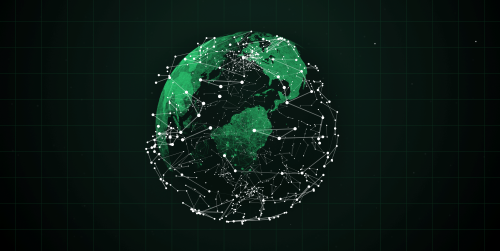
The World Economic Forum (WEF) has published its Global Risks Report 2024 this morning (10 January), where it cites climate change, geopolitical shifts, the growth of artificial intelligence (AI) and demographic changes as major risks to the global economy.
The report – which polled almost 1,500 global experts across academia, business and the public sector – was launched at a press conference in Davos, Switzerland.
WEF managing director Saadia Zahidi opened the conference by outlining that the report found a “progressive worsening of the outlook” over the next 10 years – though she did add that “most of these things” are in the gift of policymakers to address.
AI risks
The adverse effects of AI rank low on the table of risks in the immediate term but loom much larger over the decade.
The risks it poses around disinformation and cybersecurity received special emphasis at the press conference from Carolina Klint of Marsh McLennan, who also worked on the report. They said that businesses need to take “robust cybersecurity measures” to prepare for the increased sophistication of cyber-attacks.
Zurich Insurance Group’s John Scott suggested there may be a need for global agreements of standards around AI-generated content to avoid “dystopian consequences”, particularly in light of elections coming up this year across the world.
“It’s about addressing business models [in AI] and how data is monetised. It can no longer be the case that there’s no editorial of information. If we carry on like that, there will be no way to trust who or what we’re reading.
“Across the world, we’ve become like a medieval village: someone says they saw this or that happen and people act according to that without more evidence.”
Supply chain trouble
Klint also highlighted the risks posed by supply chain disruption.
“Halfway through last year, supply chains looked as though they were stabilising after the pandemic,” said Klint. But, she said, developing crises in the Red Sea and Panama Canal are disrupting them further, and could cause sustained inflation.
Those mounting the attacks on ships in the Red Sea from Yemen have “military-grade” equipment that could mean the problem is a “long-term one”, she said – something which in practice amounts to “sanctions on Europe”.
“It is not one stakeholder group that can solve the problems [in the report] alone,” she suggested, arguing there was the need for greater cross-border collaboration following a recent period of geopolitical fragmentation – another challenge highlighted in the report as creating an “unstable global order” with impacts on trade and development.
Climate change
Scott addressed the subject of climate change, which Zahidi explained was now treated in the report as a structural condition rather than an individual risk.
Echoing the conclusion of the report, he said local strategies were a particularly powerful way to address the risks of climate change, citing flood defences and early warning systems as examples of localised solutions to the problems posed by increasing volatile weather in coastal regions.
At a Q&A session at the press conference, Larry Elliott of the Guardian asked, given that Zahidi predicted a “soft landing” for the global economy after previous fears of a recession, why was the outlook of so many in the report pessimistic?
“Because economic hardship is still high,” Zahidi explained. “Inflation is being controlled, but prices still growing.”
The end of development?
She went on to note a section of the report called “The end of development”, which highlights the “fragility” of recent advances in human development indications across the world as the result of strong global economies and trade.
The report suggests a decline in economic mobility for many, while “advances in AI, demographic shifts and geopolitical dynamics” could all contribute to a “mismatch between the demand supply of labour between and within countries”.
“The consequences for societal cohesion and political outcomes are wide-reaching,” it adds.



